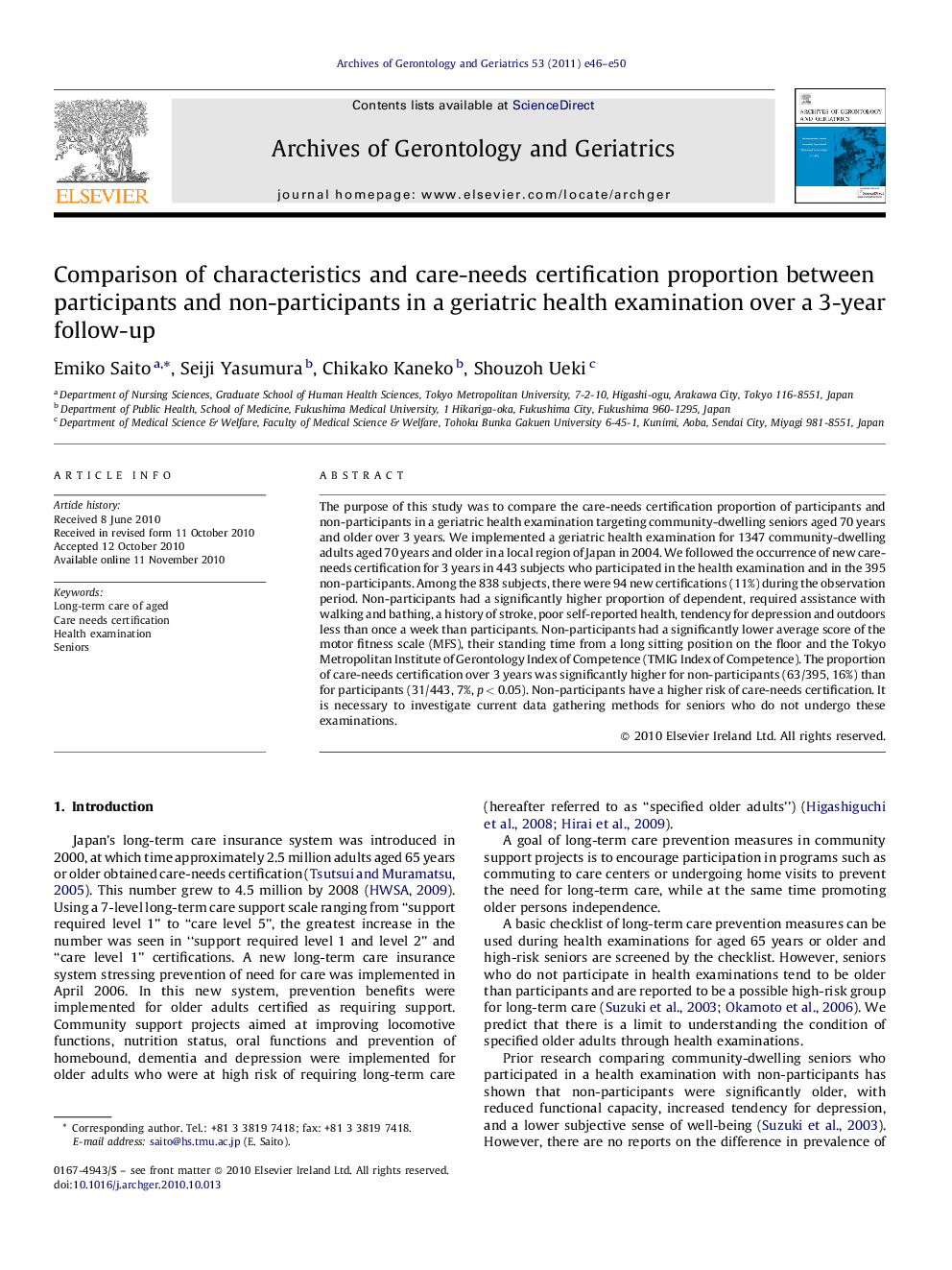| کد مقاله | کد نشریه | سال انتشار | مقاله انگلیسی | نسخه تمام متن |
|---|---|---|---|---|
| 1903067 | 1534454 | 2011 | 5 صفحه PDF | دانلود رایگان |

The purpose of this study was to compare the care-needs certification proportion of participants and non-participants in a geriatric health examination targeting community-dwelling seniors aged 70 years and older over 3 years. We implemented a geriatric health examination for 1347 community-dwelling adults aged 70 years and older in a local region of Japan in 2004. We followed the occurrence of new care-needs certification for 3 years in 443 subjects who participated in the health examination and in the 395 non-participants. Among the 838 subjects, there were 94 new certifications (11%) during the observation period. Non-participants had a significantly higher proportion of dependent, required assistance with walking and bathing, a history of stroke, poor self-reported health, tendency for depression and outdoors less than once a week than participants. Non-participants had a significantly lower average score of the motor fitness scale (MFS), their standing time from a long sitting position on the floor and the Tokyo Metropolitan Institute of Gerontology Index of Competence (TMIG Index of Competence). The proportion of care-needs certification over 3 years was significantly higher for non-participants (63/395, 16%) than for participants (31/443, 7%, p < 0.05). Non-participants have a higher risk of care-needs certification. It is necessary to investigate current data gathering methods for seniors who do not undergo these examinations.
Journal: Archives of Gerontology and Geriatrics - Volume 53, Issue 1, July–August 2011, Pages e46–e50